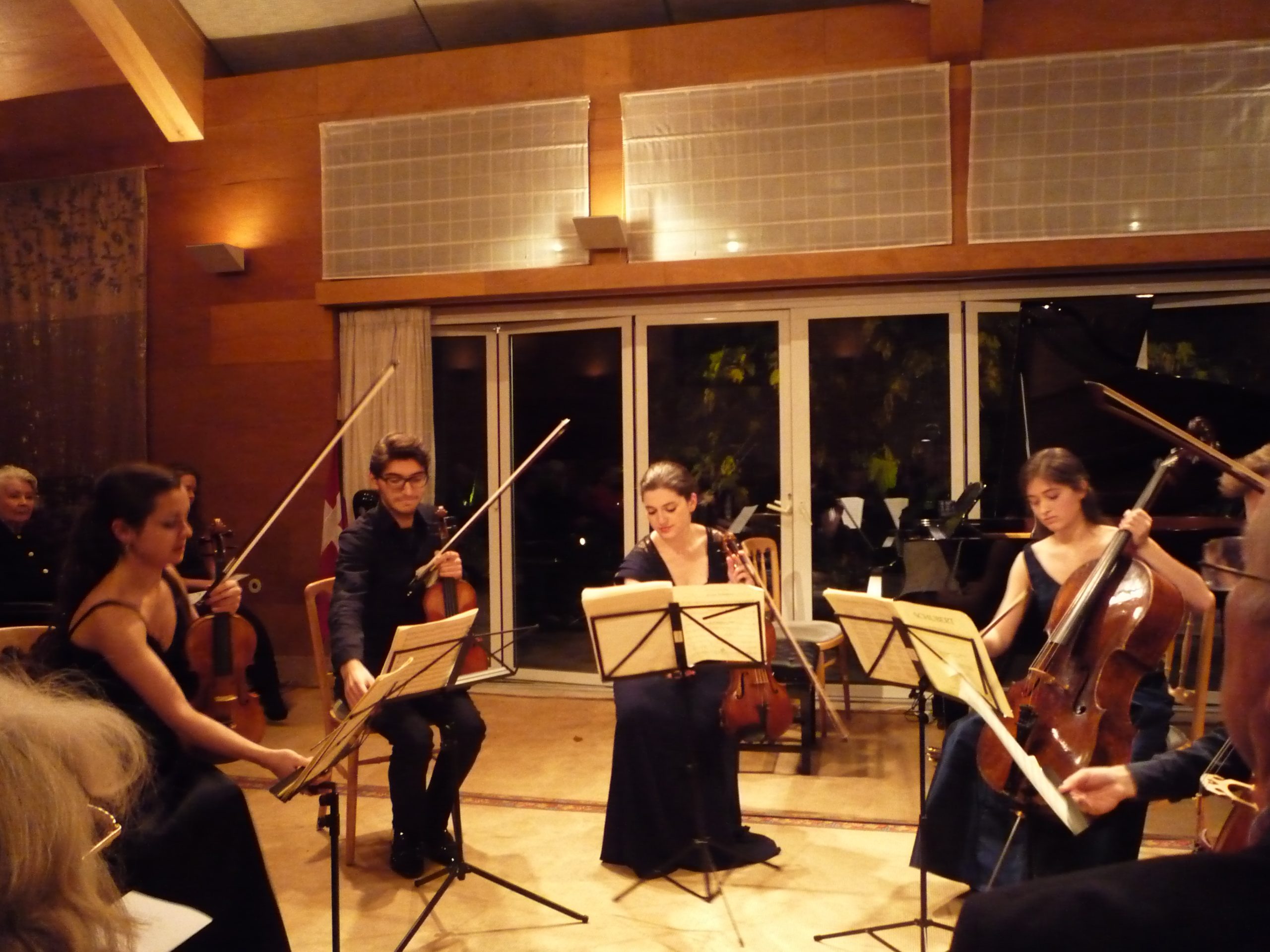 I have been coaching on the Marryat Chamber Music autumn course, which ended last night with a wonderful concert (see photo). I find it immensely cheering that such talented, accomplished young musicians obviously love chamber music so much and are determined to make it a major part of their lives.
I have been coaching on the Marryat Chamber Music autumn course, which ended last night with a wonderful concert (see photo). I find it immensely cheering that such talented, accomplished young musicians obviously love chamber music so much and are determined to make it a major part of their lives.
The four participating groups between them had come up with a great programme – the Schumann piano quartet, the Debussy trio for flute, viola and harp, Beethoven’s ‘Archduke’ Trio, and the Schubert C major string quintet. (We had to cut a few movements here and there so that the audience wasn’t there until midnight.) I have never before had the chance to coach the Schubert string quintet, and found it tremendous fun to be able to discuss questions of tempo and character with the players.
As an audience member I often find myself wondering why the musicians do certain things – how they arrived at the decision to play the slow movement so slowly, for example. I often wonder if it’s primarily the respect that players feel for an iconic work which leads them (mistakenly in my view) to equate extreme slowness with seriousness. In fact, very slow tempi are sometimes counter-productive because they focus everyone’s minds on the passing details, instead of making them aware of a larger pulse in which those details are naturally enfolded.
One of the players said an interesting thing : ‘When I’m not playing and I’m just listening to the others, it seems too slow. But when I’m playing myself, it doesn’t seem too slow.’ In a nutshell, this sums up a problem on which we musicians are always struggling to get some perspective. Tempo often seems different if you are making the music, because you’re so physically involved and because the instrument is resonating under your ear. Yet one has to remember that the composer, when imagining the perfect tempo, was probably more in the position of a listener than a performer.
I often find it helpful to remember Sandor Vegh saying, ‘I like the phrase ‘slow movement’. Not just slow, but movement! How beautiful!’




The German word for movement (as a part of a larger piece of music) is “Satz” — sentence. Sadly, I have heard some slow movements played so slowly that listening does indeed seem like a life sentence.
Oh I would love to have heard your advice and ideas about that Quintet. It’s such an amazing work of art, surely the ‘Everest’ of chamber music. For me the K2 is the E flat piano trio… and I adore the Florestan Trio’s recording!
And a further thought that I just can’t resist sharing – how different the slow movements of the E flat Trio and String Quintet are..! I know the C Major Quintet of Mozart quite well, and I’m convinced that it was in some ways an inspiration for Schubert when he came to write his own. As beautiful as the lieder are, it’s these late chamber pieces that truly make my mind boggle!!
I’m only just daring to listen to late Beethoven, it was just madness to me before but now that I’m in my 30s I’m beginning to understand their beauty.
Thank you, James – I find all your comments very sympathetic. And I agree about late Beethoven – it’s strange how it gradually makes more sense.